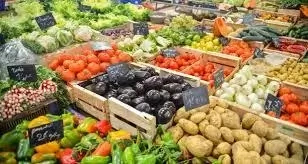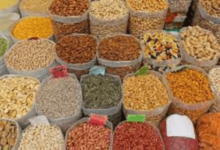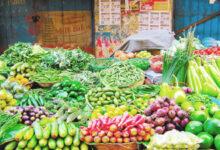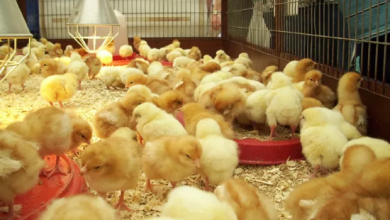7 Ways To Sell Farm Produce In Nigeria
A Simple Guide To Effective Agricultural Marketing For Farmers And Business Owners
Agriculture is one of the major sectors of most economies in the world, including Nigeria. It is associated with the processes of planting and harvesting of crops, rearing of livestock i.e. animal husbandry.
We have several other activities related to the definitions of agriculture such as forestry, fish farming, lumbering, etc.
👉 Relocate to Canada Today!
Live, Study and Work in Canada. No Payment is Required! Hurry Now click here to Apply >> Immigrate to CanadaRead Also: 10 Best Business Opportunities In The Agricultural Sector In Nigeria

However, one thing common to every farmer and farm business owners is the buying and selling of farm products. Selling involves supplying a specified amount of farm produce to a market at a certain price, while buying, on the other hand, entails demanding an estimated quantity of farm produce at a given price. Nevertheless, without an effective distribution of farm products, it is almost impossible to make profits from sales.
Nigerian farmers, especially the peasant ones face a lot of challenges in selling their products profitably. Many producers are being exploited on a daily basis by the wholesalers and agricultural agents.
These agents purchase farm products at very low prices from the farmers and eventually, selling it to retailers and final consumers at high prices.
As a result, the wholesalers are getting richer at the expense of the farmers. Moreover, a typical farm owner in Nigeria earns less than the agents and wholesalers.
Notwithstanding, Nigerian farm production is limited in a couple of ways: inadequate storage facilities reduce the market value of stored produce maybe, due to pest invasion and unfavourable weather conditions; inaccessibility is another problem because it reduces the access of farmers from their farmlands to the local markets as a result of bad roads.
There are many more problems facing agricultural marketing in Nigeria. Yet, with all these layers of difficulty in agricultural marketing, thousands of individuals and firms are making more investments in agriculture.
Although, every farm business owner are working hard to sell their produce effectively, most farm business eventually generate little or no profit.
👉 Relocate to Canada Today!
Live, Study and Work in Canada. No Payment is Required! Hurry Now click here to Apply >> Immigrate to CanadaThe questions we have now is “how can we sell farm produce in Nigeria?” and “how can farmers maximize profit from sales?” Let’s look at the various methods of distributing farm produce, and maximizing profit.
Read Also: How To Package Agricultural Produce In Nigeria
1. Join Farmers’ Association
The first step to take as a farmer is to join a farmers’ association within your local community. It’s very important to belong to at least one association because they’ll be keeping you up-to-date with trends in the local market.
It will enable to be aware of latest market news, disease outbreaks, new tax regulations, and a lot more. Being part of farm associations is a cheaper way to stay in the middle of the market chain, eliminating middlemen, and subsequently increasing the returns on your sales.
One important attribute of these associations is the power they have to engage in legal issues on your behalf. An example of a prestigious farm association in Nigeria is the “All Farmers’ Association of Nigeria (AFAN).”
2. Selling Directly To Customers
One of the best ways of selling farm produce by local farmers is through selling the goods directly to the final consumers.
By doing this, you’ll be able control the whole distribution chain and control the final market price. To sell directly to consumers, you’ll need to set up a small shed in your farm to enable buyers to buy from you directly, thereby increasing your sales. In addition, you have the privilege to build a strong customer relationship with the consumers.
3. Online Selling
Another method of marketing your produce at cheaper costs is the use of the internet. With online selling, your products are exposed to a large body of potential customers.
Using internet technology requires you to have an e-commerce platform to showcase your products. You can sign up on Shopify to get a free e-commerce account.
You can also sell your farm produce through Facebook, in fact, there are thousands of groups on Facebook created solely for buying and selling. Through this medium, you can sell your farm produce to online customers.
Read Also: Problems of Agricultural Marketing in Nigeria
4. Selling In Local Markets
Local markets serve as points of physical contact between buyers and sellers. You can sell your farm produce at any market within your local community.
However, you’ll have to obtain trade permit from your local government authorities before you can sell in any local market in Nigeria.
You’ll also have to rent a shop to store your farm produce in the marketplace to to prevent your goods from being stolen.
5. Selling To Manufacturing Companies
The demand for raw materials by manufacturing firms in Nigeria is increasing day-by-day. Fortunately, most of these raw materials are farm products.
Therefore, commercial farmers can directly supply their farms’ produce to these companies. Examples of companies that farms produce as raw materials are: Nestle Plc; they need cocoa to produce chocolate powder and beverages; Cadbury Nigeria; they also need cocoa as raw materials to produce chocolate drinks.
We have industries that need maize to produce cornflakes. Notwithstanding, you have to produce in large quantities before you sell directly to manufacturing firms.
6. Supplying Large Retail Stores
Big stores like shoprites and the likes, supermarkets, and other large retail outlets always have fruits’ section in their stores.
You can use this opportunity to supply fresh fruits to these stores, if you are a fruit farmer, though. Most of these stores have to sell fresh fruits to their customers, thereby increasing demand for fruits. Moreover, selling to large stores relieves you the cost of storage facilities and pests invasion.
Read Also: 7 ways to Encourage youth participation in agriculture; a panacea to youth unemployment in Nigeria.
7. Exportation Of Farm Produce
Cash crops like cocoa, cotton, oil palm, etc are goods that have high demand on the international trade market. Every manufacturing nations of the world need these products desperately.
In fact, the level of demand is far greater than the supply; meaning every cash crop from your farm has a ready market.
As a wise farmer, the best avenue to maximize your profit is through the exportation of your farm produce. When you export, you’ll sell at a price higher than the local market price.
Note: for all the methods of selling mentioned above, an effective negotiation skill is something every serious farm owner must have.
You may have to negotiate your selling price with the buyers, even before production and harvesting, to be on a safer side.
Secondly, you need to have prior knowledge of the market for your products even before going into farm production. You must know when to increase your price and when to reduce it.
I wish you the best of luck in your farm production and business.





